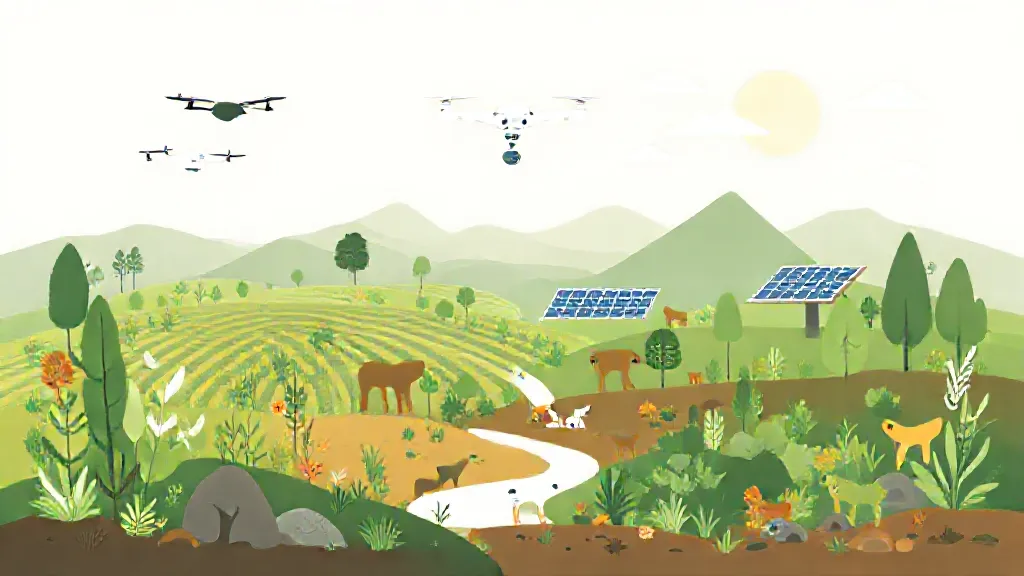Artificial Intelligence (AI) has emerged as a transformative force across various sectors, and its potential to bolster environmental sustainability is particularly noteworthy. As the world grapples with pressing issues like climate change, resource depletion, and biodiversity loss, AI technologies offer innovative solutions that can enhance efficiency, reduce waste, and promote sustainable practices. This article delves into the multifaceted ways AI is improving environmental sustainability, examining its applications, benefits, and future potential.
AI in Energy Management
One of the most significant areas where AI is making strides in environmental sustainability is energy management. AI algorithms can analyze vast amounts of data from energy consumption patterns, enabling businesses and households to optimize their energy use. For instance, smart grids powered by AI can predict energy demand and supply fluctuations, allowing for better integration of renewable energy sources like solar and wind.
Companies like Google have successfully implemented AI to reduce energy consumption in their data centers, achieving up to a 40% reduction in energy use.
Precision Agriculture and Resource Management
AI is also revolutionizing agriculture through precision farming techniques. By utilizing AI-driven tools such as drones, sensors, and machine learning algorithms, farmers can monitor crop health, soil conditions, and weather patterns in real time.
This data-driven approach enables farmers to apply fertilizers and pesticides more efficiently, reducing chemical runoff and minimizing environmental impact. For example, IBM's Watson Decision Platform for Agriculture combines AI with IoT and blockchain to help farmers make informed decisions, leading to increased yields and reduced resource waste.
Waste Management Innovations
In the realm of waste management, AI technologies are transforming how cities handle recycling and waste disposal.
Machine learning algorithms can sort recyclables more efficiently than human workers, increasing the rate of recycling and reducing contamination in recycling streams. Companies like AMP Robotics are developing AI-powered robots that can identify and sort different types of materials, significantly improving the efficiency of recycling facilities. This innovation not only conserves resources but also reduces the volume of waste sent to landfills.
Biodiversity Conservation Efforts
AI is proving invaluable in conservation efforts aimed at protecting biodiversity. Machine learning models can analyze data from camera traps and acoustic sensors to monitor wildlife populations and their habitats. This technology enables conservationists to identify trends and threats to endangered species more effectively.
For instance, the use of AI in tracking poaching activities has led to the development of predictive models that help rangers allocate resources more efficiently to combat wildlife crime.
Water Resource Management
Water scarcity is a critical issue in many parts of the world, and AI is playing a crucial role in optimizing water resource management. AI algorithms can analyze data from various sources, including weather forecasts, soil moisture levels, and historical usage patterns, to predict water needs for agricultural and urban areas.
This predictive capability allows for more efficient irrigation practices, reducing water waste. Companies like AquaSpy are using AI to provide farmers with real-time data on soil moisture, enabling them to irrigate more effectively.
Climate Change Mitigation Strategies
AI also contributes to climate change mitigation by enhancing climate modeling and forecasting.
Machine learning techniques can analyze complex climate data to improve the accuracy of climate models, helping policymakers make informed decisions regarding climate action. AI-driven simulations can predict the impacts of different policy scenarios on greenhouse gas emissions, guiding governments and organizations in developing effective strategies to combat climate change.
Sustainable Urban Planning
As urban areas continue to grow, AI is essential in promoting sustainable urban planning.
Smart city initiatives leverage AI to optimize transportation systems, reduce traffic congestion, and improve air quality. For instance, AI algorithms can analyze traffic patterns and adjust traffic signals in real time, minimizing emissions from idling vehicles. Additionally, AI can help design greener urban spaces by analyzing land use patterns and recommending sustainable development practices.
Future Prospects of AI in Sustainability
Looking ahead, the potential for AI to enhance environmental sustainability is vast. Continued advancements in AI technologies, coupled with increased collaboration between governments, businesses, and research institutions, can lead to innovative solutions for pressing environmental challenges. As AI becomes more integrated into sustainability efforts, it is crucial to ensure that these technologies are developed and implemented ethically, considering their social and environmental implications.
In conclusion, AI is playing a pivotal role in advancing environmental sustainability across various sectors. From energy management and agriculture to waste management and conservation, the applications of AI are diverse and impactful. By harnessing the power of AI, we can create a more sustainable future that balances economic growth with environmental stewardship.
